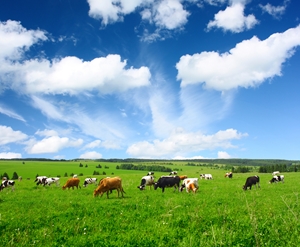A commitment has been made by the Newman government to double the agriculture industry by 2040, which is encouraging news for those seeking a farming or food processing apprenticeship in Queensland.
The agriculture research, development and extension (RD&E) plan has been released, and outlines the government’s focus on revitalising agriculture in Queensland.
“Our RD&E plan is one way in which we are supporting this vital sector’s growth,” Minister for Agriculture, Fisheries and Forestry John McVeigh said in a November 1 statement.
“Funding RD&E to develop knowledge and new technologies is a fundamental component of the innovation process.”
Agriculture is a large and influential industry in Queensland. As Australia’s second largest state, Queensland covers more than 173 million hectares of land and almost 83 per cent of this ground is used for agriculture, with 144 million hectares contributing to this industry.
The RD&E plan also identifies Queensland’s agriculture as a key employment industry for the state.
Figures outlined in the plan estimate more than 300,000 Queenslanders are employed across the food supply chain in the state.
“This means that one in seven Queenslanders are either partially or entirely supported by the food sector.”
“These jobs and the economic contribution they provide are the backbone of many rural and regional communities in Queensland.”
The government’s commitment to doubling the agriculture industry will be particularly welcome for those seeking employment in farming and food production. The expanded productivity should encourage increased demand for skilled workers, which will provide more opportunities for apprenticeships and traineeships in Queensland.
Research and innovation are a key component of the desired growth in the agriculture industry in Queensland, and the RD&E plan has been focussed on this.
The new plan will work closely with the National Primary Industries Research Development and Extension Framework (RDEF) to encourage collaboration on continuous improvement while preventing duplication and redundancy.
By partnering the RDEF researchers, the RD&E plan could lead to lower production costs, better yields, greater sustainability, more efficient resource allocation and new market opportunities for Queensland producers, according to Mr McVeigh.
Researchers have already started work on innovative research projects to encourage higher industry productivity.
The ‘Small Tree-High Productivity’ (STHP) initiative is one such project highlighted by Mr McVeigh.
Studies have found small trees are generally faster and easier to harvest than the larger trees crops are traditionally grown on; therefore using smaller trees has the potential to increase the potential for maximum yield output.
“Researchers are looking at dwarfing rootstocks, pruning techniques, tree architecture and traditional breeding, helped by the latest molecular technology, all of which help keep trees small for optimised harvesting with very high yields per hectare,” Mr McVeigh said.
